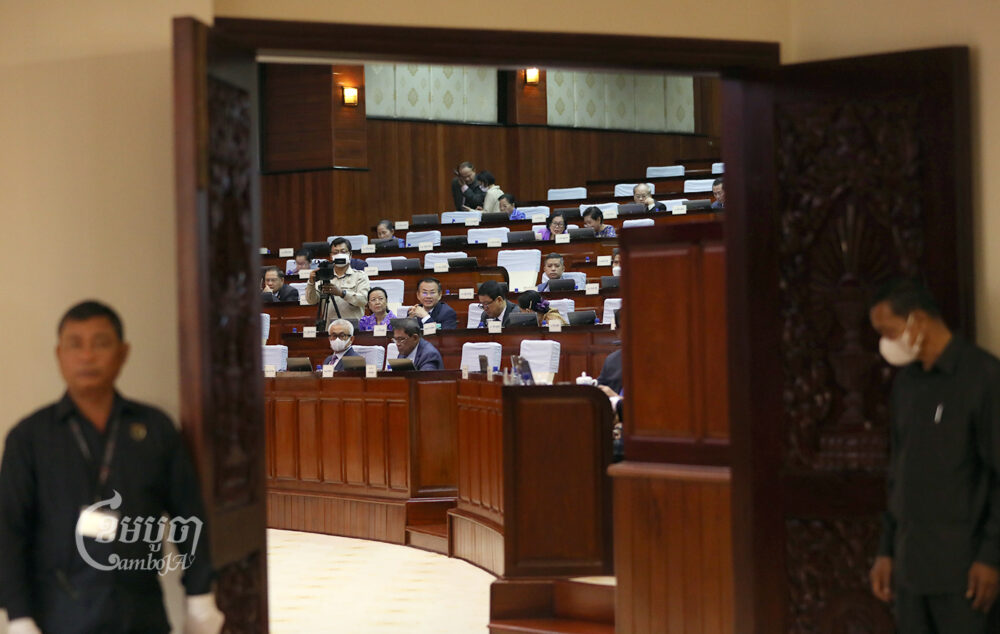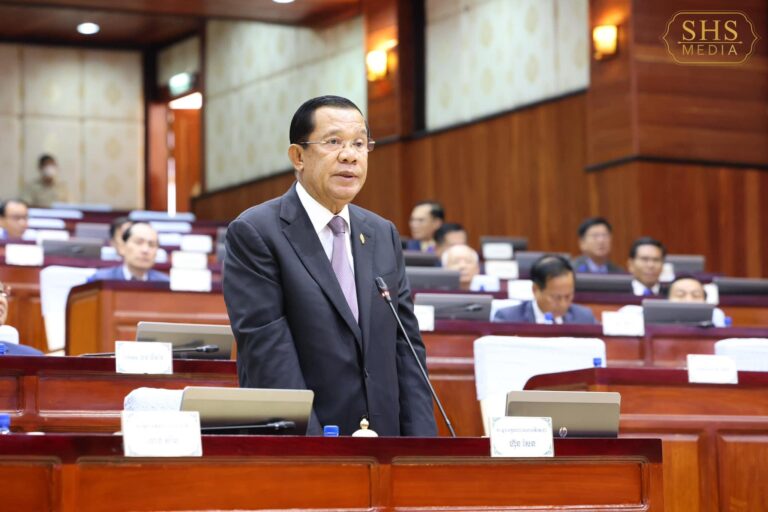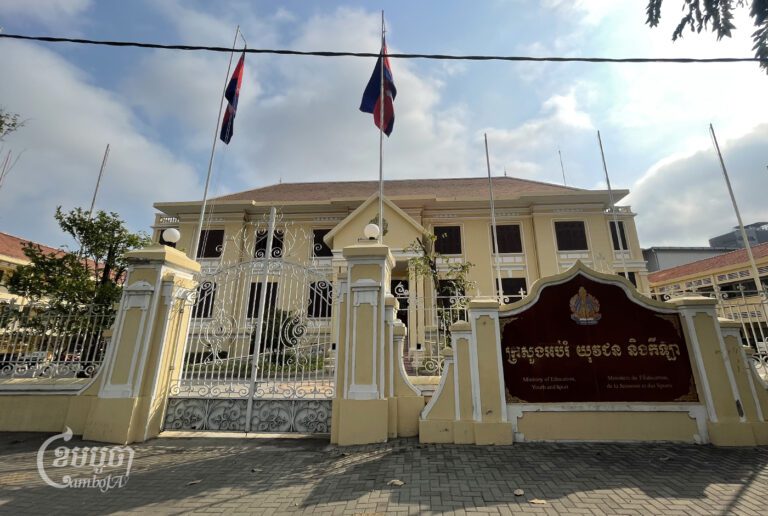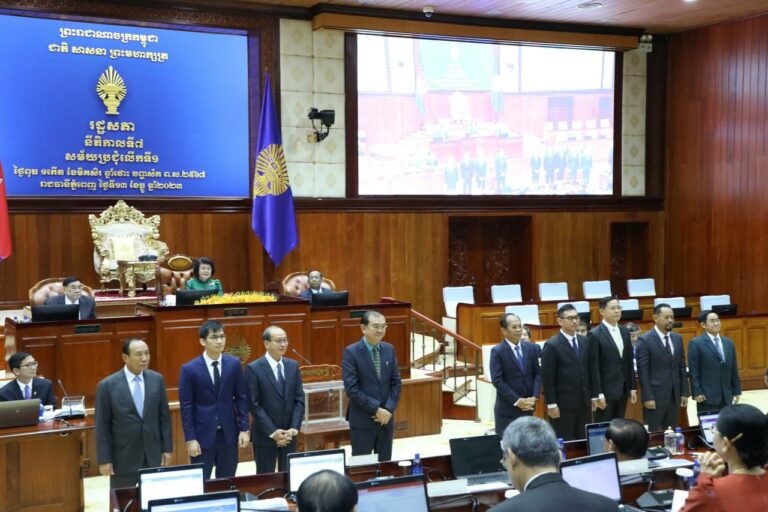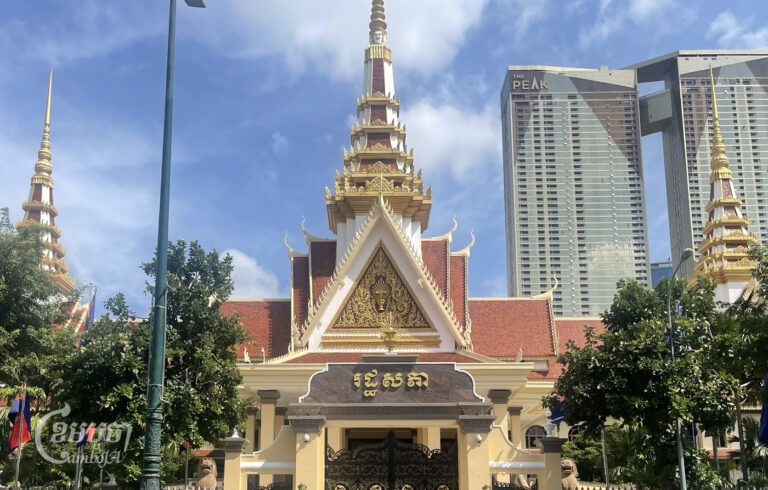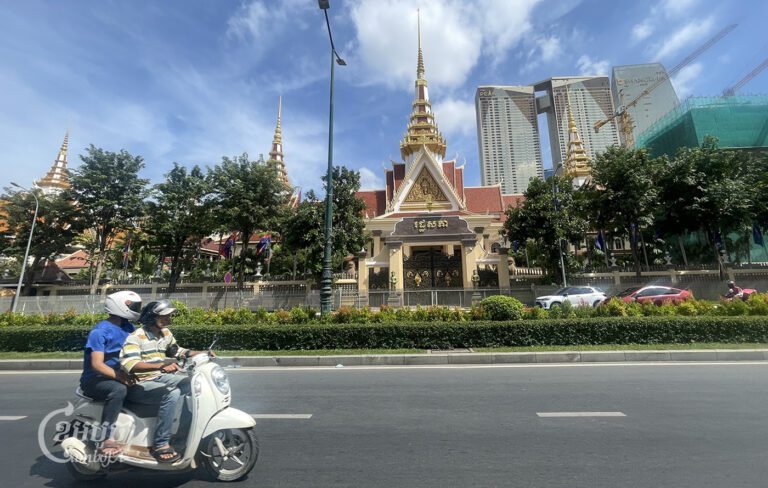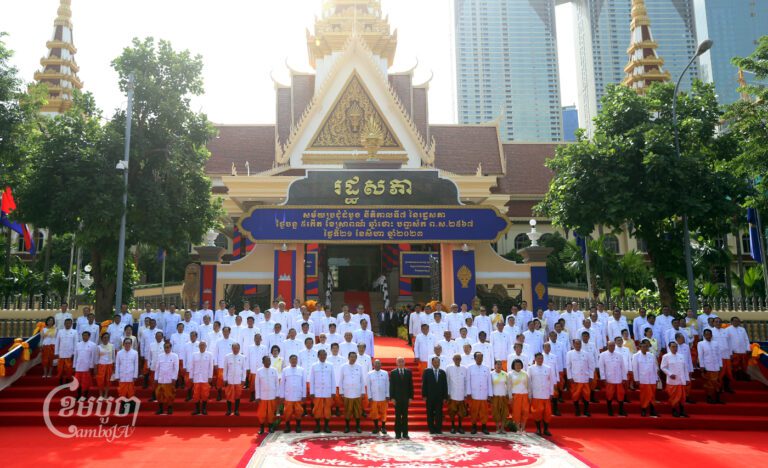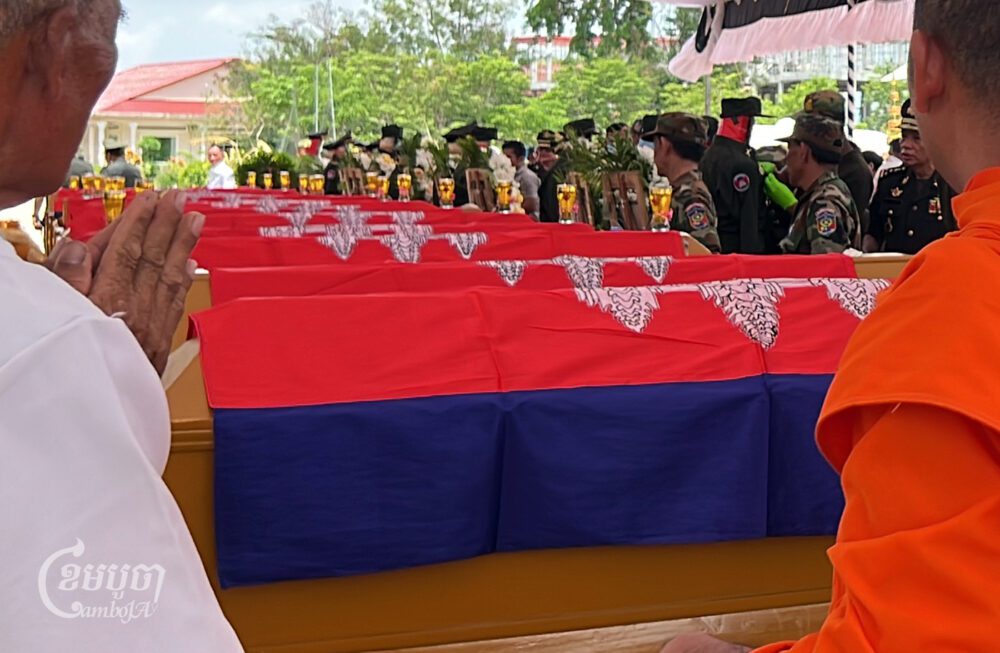Opposition political party and civil society leaders expressed concern that the National Assembly’s passage of amendments to the electoral law will restrict the rights of citizens to run as candidates in future elections.
The draft law, swiftly passed on Friday by the National Assembly following a speech by Prime Minister Hun Sen suggesting the revisions, states that candidates for office will be required to have voted in two prior consecutive elections. The law has now been sent to the Senate for further review.
Executive director of watchdog group Neutral and Impartial Committee for Free and Fair Elections, Sam Kuntheamy, said that he was not surprised the draft law passed in the National Assembly where the ruling CPP controls all 125 seats.
“There is no check and balance [at the National Assembly] or any [other] political parties to debate,” Kuntheamy said.
“The purpose of the law was intended to prevent them [opposition at abroad] from running candidate offices because they can’t come to vote,” he added. “That law is very restrictive to a person who wishes to stand as a candidate for the next elections.”
He noted that any opposition party activists currently in exile or abroad and unable to vote in the July 23 elections would be ineligible for future elections.
Candlelight Party spokesperson Kimsour Phearith, whose party was disqualified from participating in the July elections, claimed the amendments to the law were targeting his party and “do not serve the interest of society.”
Candlelight’s Tboung Khmum provincial chief Eng Sroy said he considered the draft law a further erosion of democratic processes.
“For me, whether I go to vote or not to vote, it is my right,” Sroy said. But “it does not matter because there is no democracy process and even if we have the right to vote, voting is [done] under intimidation.”
Grassroots Democratic Party secretary general Vay Lundy said that the amendments appeared intended to prevent a boycott of the upcoming elections, as some Candlelight Party supporters overseas have called for.
In 2018, supporters of the court-dissolved Cambodia National Rescue Party had urged for a boycott as part of their “clean finger campaign” referring to the ink voters dip their fingers to mark a cast ballot.
Interior Minister Sar Kheng explained that, if the law goes into effect, anyone seeking to run for office in the 2028 national elections will have had to prove they voted in the 2023 national and 2027 commune elections.
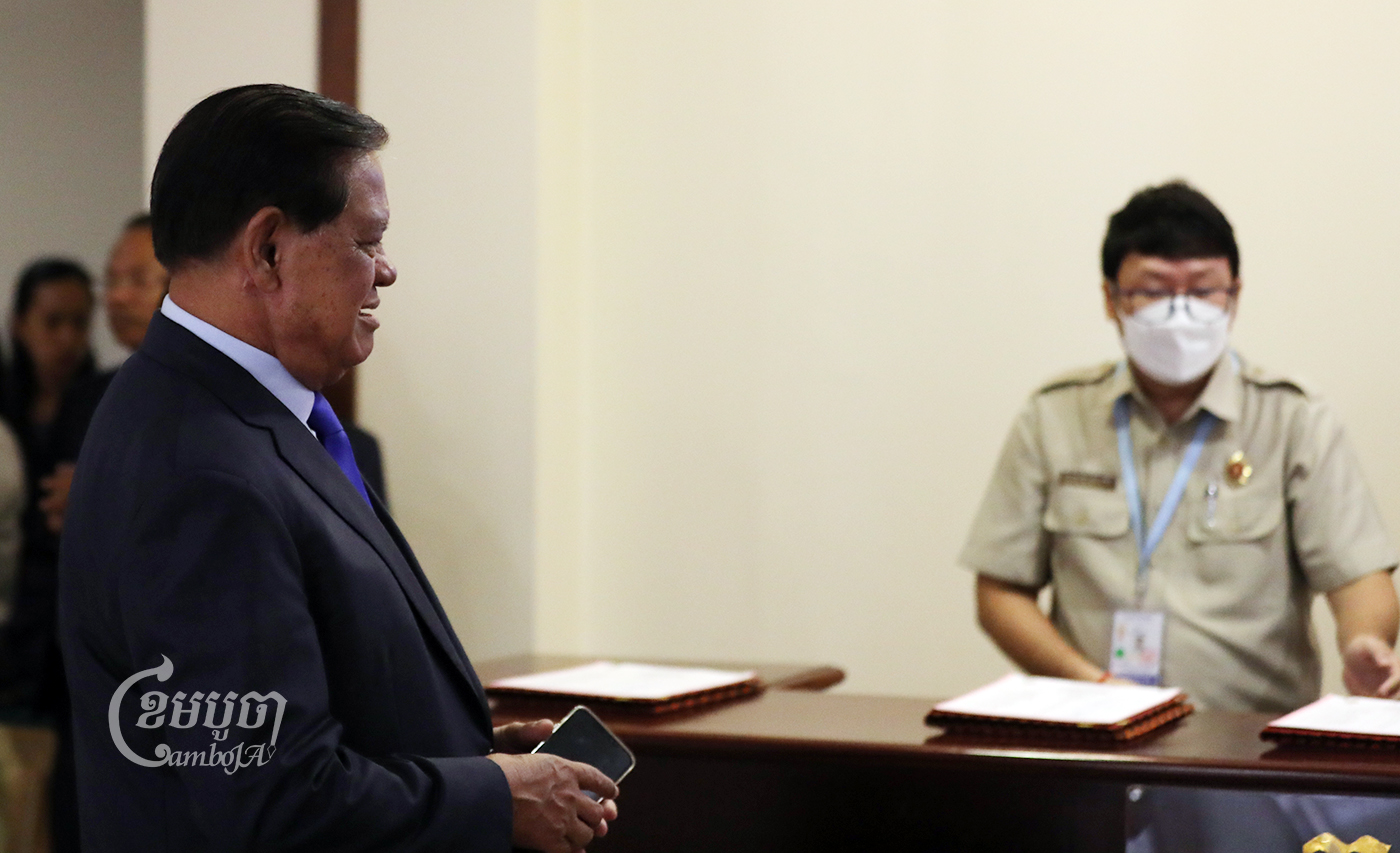
Am Sam Ath, operations director of human rights NGO Licadho, called for the government to reconsider the draft law as he claimed it restricted the rights of citizens.
“If we look at the [draft] law, it has violated the rights of voters, especially the right to stand as candidates for election because we have seen that if that law has facilitated the right to vote, it would add the right to vote for citizens who are working abroad,” Sam Ath said. He suggested voting by email or else at polling stations set up in Cambodian embassies broad.
“It might affect the rights of some citizens who have intended to stand as candidates for elections, especially people living abroad, they can’t regularly come to vote, so it is more of a burden for them,” Lundy said.
Ruling CPP spokesperson Sok Eysan rejected the claims that amending electoral laws restricted the rights of voters.
“A person who wishes to stand as a candidate for election, and they do not vote, it does mean they have given up their own political right,” Eysan said. “These laws are forced on a person who is ill-intentioned and attempts to destroy election results, and violate voter rights.”
Justice Ministry spokesperson Chin Malin declined to comment on the draft law besides stating that “the draft law was led by the Interior Ministry, and so the Justice Ministry spokesperson cannot make an interpretation.”
He referred CamboJA to Interior Ministry secretary of state Sak Setha, who could not be reached for comment.
Senate spokesperson Mam Bun Neang said that the commission on legislation and justice is now viewing the draft. If the draft law is passed by the Senate, it will be sent back to the National Assembly for review and then to King Norodom Sihamoni to sign.
Hun Sen has called for the draft law to be fully passed and signed into law before the July 23 elections.


